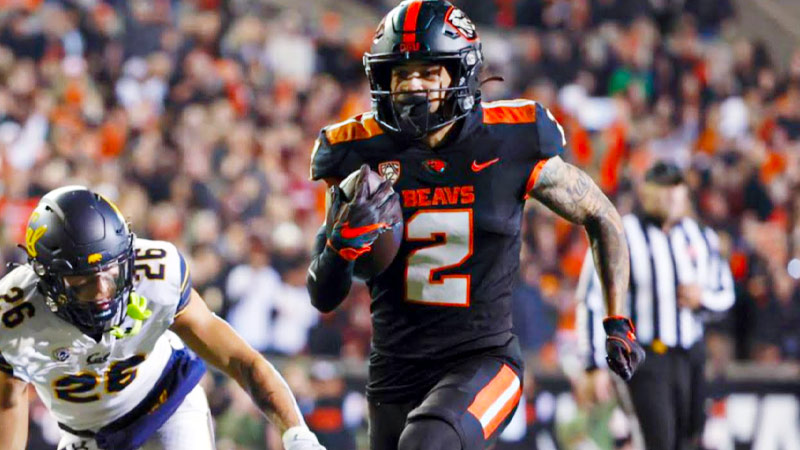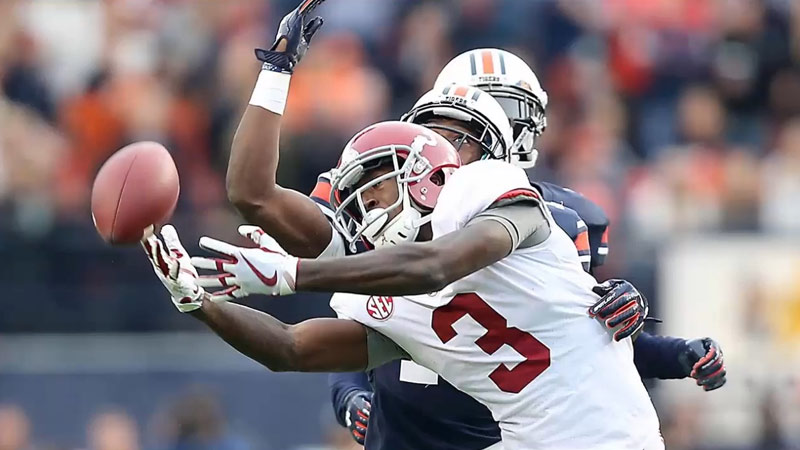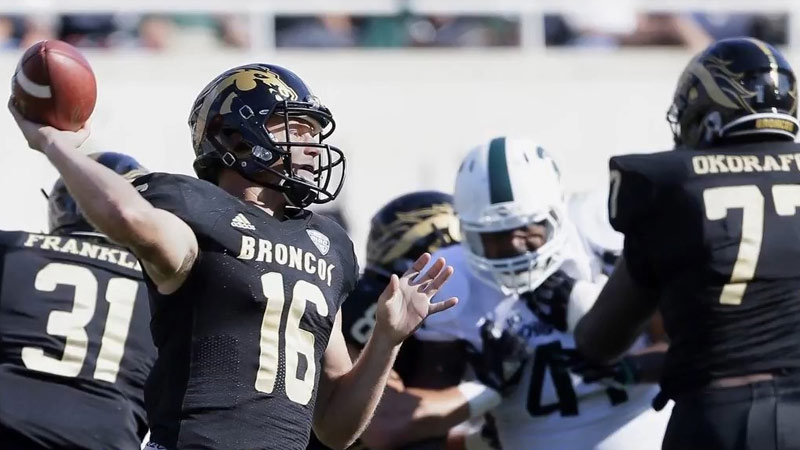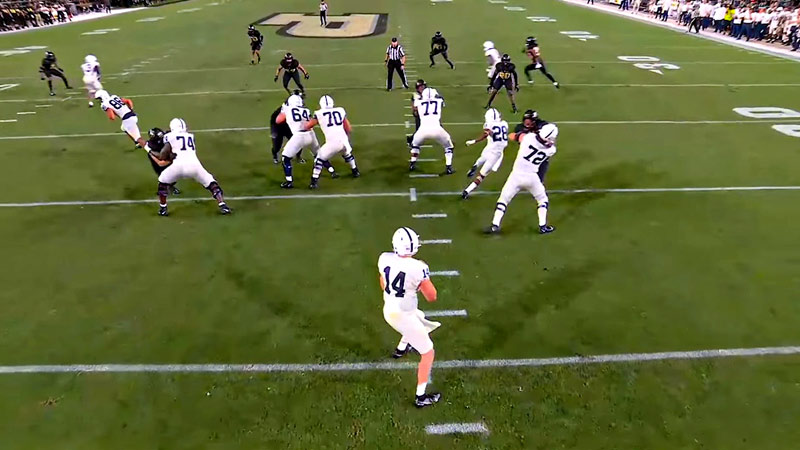College football bowl games are a thrilling culmination of the football season, offering teams a chance to compete for prestigious titles and showcase their talents on a national stage.
However, not every college football team is granted the privilege of participating in these highly anticipated postseason contests.
Bowl game eligibility rules serve as the gatekeepers to this exclusive realm, laying down the criteria that teams must meet to earn a coveted spot in a bowl game.
These rules, set by various conferences and the NCAA, encompass factors like winning records, conference tie-ins, rankings, and at-large bids.
This essay delves into college football bowl game eligibility rules, shedding light on the selection process and the criteria that determine which teams will have the opportunity to shine under the bright lights of bowl season.
What Are College Football Bowl Game Eligibility Rules?
College football bowl game eligibility rules determine which teams get the opportunity to compete in postseason bowl games.
These rules are set by various conferences and the NCAA, and they aim to provide a fair and competitive selection process.
Here are some common eligibility rules:
Winning Record
One of the most common eligibility criteria is having a winning record. Most conferences require teams to finish the regular season with at least six wins to be eligible for a bowl game.
This rule ensures that teams must have a positive performance throughout the season to qualify for postseason play.
Conference Tie-Ins
Many bowl games have tie-ins with specific conferences, meaning that the bowl organizers invite a team from a particular conference to participate.
These tie-ins may guarantee a bowl berth to the highest-ranking team in a specific conference, or they may have a selection order based on conference standings.
At-Large Bids
In addition to teams that meet the winning record requirement and have tie-ins, bowl games can also extend “at-large” bids to teams with exceptional records or strong fanbases.
These at-large bids provide opportunities for highly-ranked teams from various conferences to participate in prestigious bowl games.
Rankings and Selection Committees
College football playoff rankings and selection committees play a significant role in determining which teams get invited to the College Football Playoff and other high-profile bowl games.
The rankings are influenced by a team’s performance throughout the season, strength of schedule, and other factors, with the top-ranked teams earning coveted bowl berths.
Conference Championship Games
Some bowl games prioritize teams that win their conference championship. Conference champions may receive automatic bids to certain bowl games, especially those with specific conference tie-ins.
Overall, the college football bowl game eligibility rules create a competitive and exciting postseason landscape.
The selection process allows teams with exceptional performances and strong records to showcase their skills and compete against other top programs on a national stage, contributing to the thrilling atmosphere of college football bowl season.
Exceptions In Bowl Game Eligibility

Bowl game eligibility criteria are generally well-defined and strictly followed, but there are certain exceptions or special circumstances that can impact a team’s eligibility for postseason play.
Here are some exceptions to the typical bowl game eligibility rules:
Academic Progress Rate (APR) Waivers
The NCAA’s Academic Progress Rate (APR) is a metric used to measure the academic performance and retention of student-athletes.
If a team falls below a specified APR threshold, they may face penalties, including loss of scholarships or postseason bans.
However, in some cases, the NCAA may grant APR waivers to teams that show significant improvement in their academic progress, allowing them to be eligible for bowl games despite not meeting the standard APR requirements.
Bowl Subdivision Transition
Teams that transition from the Football Championship Subdivision (FCS) to the Football Bowl Subdivision (FBS) face a transition period during which they are not eligible for bowl games.
However, the NCAA may grant a waiver to a transitioning team, allowing them to be eligible for bowl games if they meet specific criteria, such as winning a minimum number of games or demonstrating competitiveness against FBS opponents.
Bowl Game Hosting Obligations
Some conferences have contractual agreements with specific bowl games that require them to invite teams from certain conferences or regions. In some cases, a conference may have more eligible teams than available bowl slots.
In such scenarios, the conference and the bowl organizers may work together to find suitable arrangements to ensure deserving teams receive bowl invitations.
Injuries and Opt-Outs
Occasionally, teams that are eligible for bowl games may face challenges due to injuries to key players or the decision of players to opt out of the game to prepare for the NFL Draft. In such situations, bowl organizers and conferences may consider the overall competitiveness of the team and the impact of missing players before extending an invitation to a bowl game.
COVID-19 Pandemic Exceptions
During the COVID-19 pandemic, the NCAA and conferences made adjustments to the bowl game eligibility criteria to accommodate the challenges faced by teams.
Temporary changes included reducing the minimum number of wins required for eligibility or considering other factors, such as the strength of schedule and competitive performances, to determine bowl invitations.
Overall, while bowl game eligibility criteria are generally strict, exceptions and special circumstances occasionally arise.
The NCAA and conferences may grant waivers or make temporary adjustments to ensure that deserving teams have the opportunity to participate in postseason bowl games, adding flexibility and fairness to the selection process.
How Are Teams Selected For Bowl Games?

The selection process for college football bowl games involves various factors, including conference affiliations, rankings, win-loss records, and tie-ins with specific bowls.
Here’s a breakdown of how teams are typically selected for bowl games:
Conference Tie-Ins
Many bowl games have contractual agreements with specific conferences, known as conference tie-ins. These tie-ins stipulate that certain bowl slots are reserved for the top teams from particular conferences.
The team that finishes highest in the conference standings, or a specific ranking within the conference, receives an automatic invitation to the corresponding bowl game.
Conference tie-ins help maintain traditional matchups and create regional rivalries, contributing to the excitement of the bowl season.
At-Large Bids
Apart from teams qualifying through conference tie-ins, some bowl games offer “at-large” bids. At-large bids allow bowl organizers to invite high-performing teams from various conferences that did not qualify through the standard criteria.
These invitations are often extended to teams with exceptional records, strong fanbases, or impressive performances against tough opponents. At-large bids ensure a diverse and competitive lineup of teams in bowl matchups.
College Football Playoff (CFP) Selection
The College Football Playoff (CFP) selection process determines the four teams that will compete in the playoff semifinals and contend for the national championship.
A selection committee, composed of individuals representing various college football backgrounds, evaluates teams based on their performance, strength of schedule, head-to-head results, and other relevant factors.
The committee’s rankings influence which teams participate in the CFP semifinals and the prestigious New Year’s Six bowls.
Conference Championship Game Winners
Teams that win their respective conference championship games often earn automatic qualification to specific bowl games.
These bowl games are often affiliated with the conference, and the winner of the championship game receives an invitation as a reward for their conference supremacy.
Conference champions are highly regarded and celebrated during the bowl season.
Selection Committees and Organizers
Bowl games are organized by various committees and organizations, each responsible for selecting teams for their specific bowl games.
These committees consider a combination of factors, such as team performance, rankings, historical performance in previous bowls, and fan interest, to make their selections.
Their aim is to create compelling matchups that attract viewers and generate excitement for the bowl games.
Overall, the selection process for college football bowl games is a well-coordinated effort involving conference tie-ins, at-large bids, the College Football Playoff selection committee, and various bowl game organizers.
It aims to create competitive and appealing matchups while honoring conference champions and recognizing the outstanding achievements of college football teams throughout the season.
What Happens If There Are Not Enough Bowl-Eligible Teams?

If there are not enough bowl-eligible teams to fill all the available bowl game slots, it creates a unique situation for the college football postseason landscape.
Several scenarios can unfold in such circumstances:
Bowl Game Cancellations
In some instances, if there are not enough eligible teams to fill all the bowl game slots, certain bowl games may be canceled or not played. Bowl games rely on a specific number of qualified teams to ensure competitive matchups and generate interest among fans.
If there are not enough eligible teams, some bowls may not take place during the postseason.
Bowl Eligibility Waivers
In exceptional cases, the NCAA may consider granting bowl eligibility waivers to teams that fall just short of the standard requirements. These waivers allow teams with fewer than the required number of wins to participate in bowl games.
Waivers are typically granted in response to unforeseen circumstances, such as game cancellations due to weather or extenuating factors like the COVID-19 pandemic.
Expansion of Eligibility Criteria
In rare instances, bowl organizers and conferences may temporarily adjust the eligibility criteria to accommodate the shortage of bowl-eligible teams.
This may include lowering the minimum number of wins required for bowl qualification or considering additional factors, such as the strength of schedule or competitive performances, to select teams for bowl invitations.
Inviting Subdivision Teams
If there is a shortage of bowl-eligible Football Bowl Subdivision (FBS) teams, bowl organizers may consider inviting top-performing teams from the lower-tier Football Championship Subdivision (FCS) or other non-FBS divisions.
Inviting FCS teams to FBS bowl games is a rare occurrence, but it can be a solution to ensure all bowl slots are filled and provide additional postseason opportunities for deserving teams.
Cancellation of Bowl Games
In some cases, bowl games may be canceled due to unforeseen circumstances, such as teams withdrawing from participation or issues with bowl game organizers.
When this happens, the affected teams may receive alternate postseason arrangements or simply miss out on the opportunity to play in a bowl game.
In summary, a shortage of bowl-eligible teams can lead to adjustments in the postseason landscape.
Bowl game cancellations, eligibility waivers, expansion of eligibility criteria, inviting subdivision teams, and the possibility of teams missing out on bowl opportunities are potential outcomes when there are not enough teams to fill all the available bowl slots.
FAQ
What are the minimum requirements for a college football team to be eligible for a bowl game?
To be eligible for a college football bowl game, a team must typically finish the regular season with a winning record.
This means they must have won at least six of their scheduled games, though some conferences may have specific win requirements for bowl eligibility. Having a winning record ensures that teams have demonstrated a level of competitiveness and consistency throughout the season.
Can a team with a losing record still be eligible for a bowl game?
In exceptional cases, the NCAA may grant bowl eligibility waivers to teams that fall just short of the standard requirements. This waiver allows teams with a losing record, meaning they won fewer than six games, to participate in bowl games.
How do conference tie-ins influence bowl game eligibility?
Many bowl games have contractual tie-ins with specific conferences, meaning that certain bowl slots are reserved for the top teams from particular conferences.
The team that finishes highest in the conference standings, or a specific ranking within the conference, receives an automatic invitation to the corresponding bowl game.
What role does the College Football Playoff (CFP) selection process play in bowl game eligibility?
The College Football Playoff (CFP) selection process determines the four teams that will compete in the playoff semifinals and contend for the national championship. The CFP selection committee ranks teams based on their performance, strength of schedule, head-to-head results, and other relevant factors.
How are at-large bids determined, and what do they mean for bowl eligibility?
Apart from teams qualifying through conference tie-ins, some bowl games offer “at-large” bids. At-large bids allow bowl organizers to invite high-performing teams from various conferences that did not qualify through the standard criteria.
Conclusion
College football bowl game eligibility rules add an element of excitement and competition to the post-regular season landscape.
The stringent criteria, including winning records, conference tie-ins, at-large bids, rankings, and the College Football Playoff selection process, ensure that only the most deserving and competitive teams get the chance to partake in these thrilling postseason matchups.
Bowl games provide a platform for teams to showcase their talents, create memorable moments for fans, and crown champions of their respective bowl contests.
As each season unfolds, the anticipation and debate surrounding bowl game selections add to the allure and excitement of college football, culminating in an unforgettable and action-packed bowl season.







